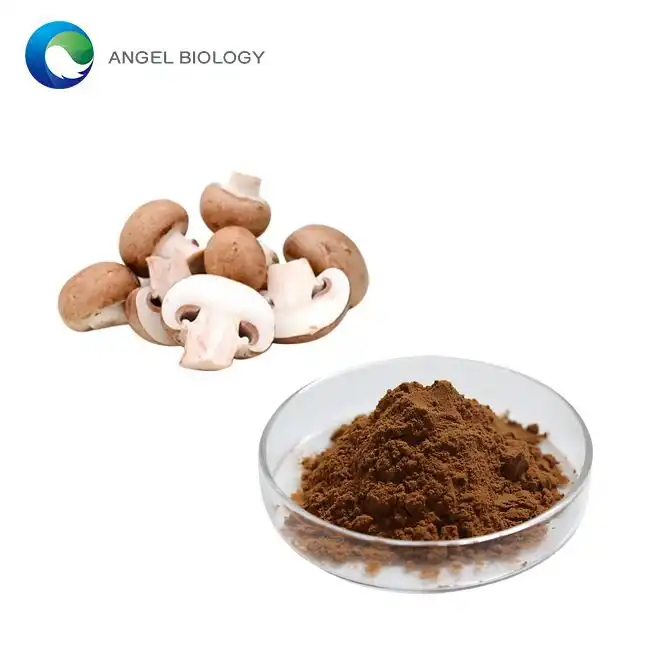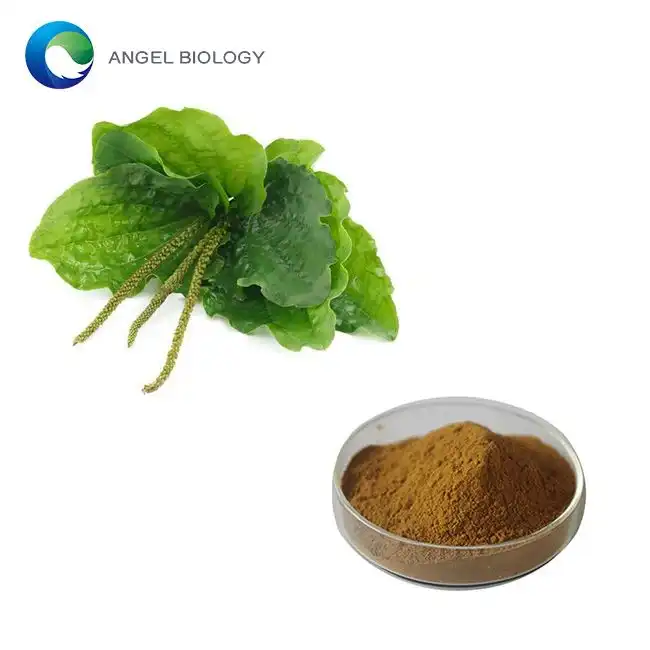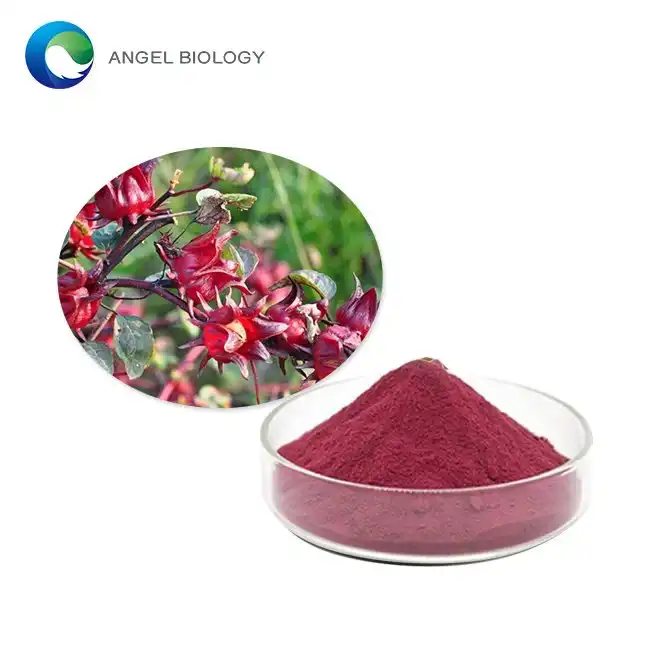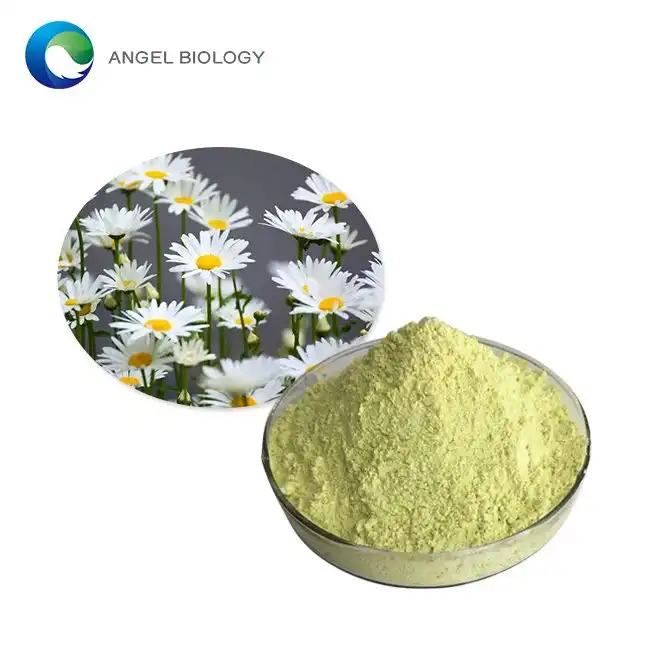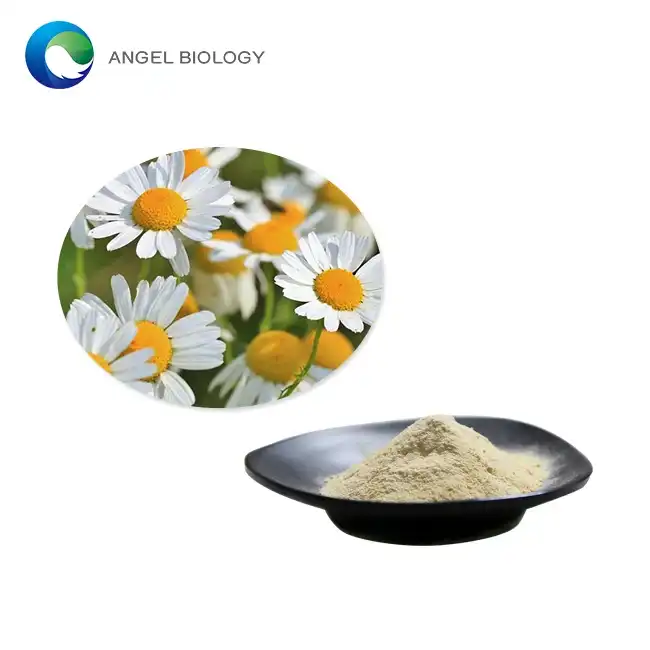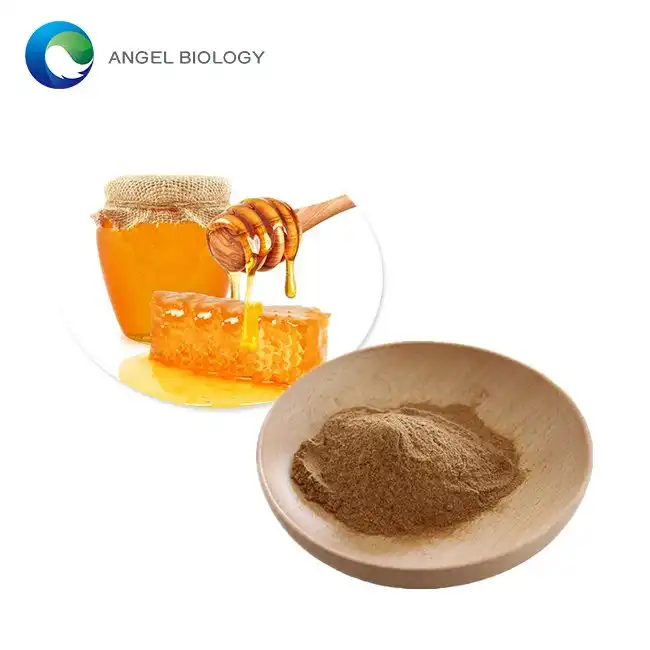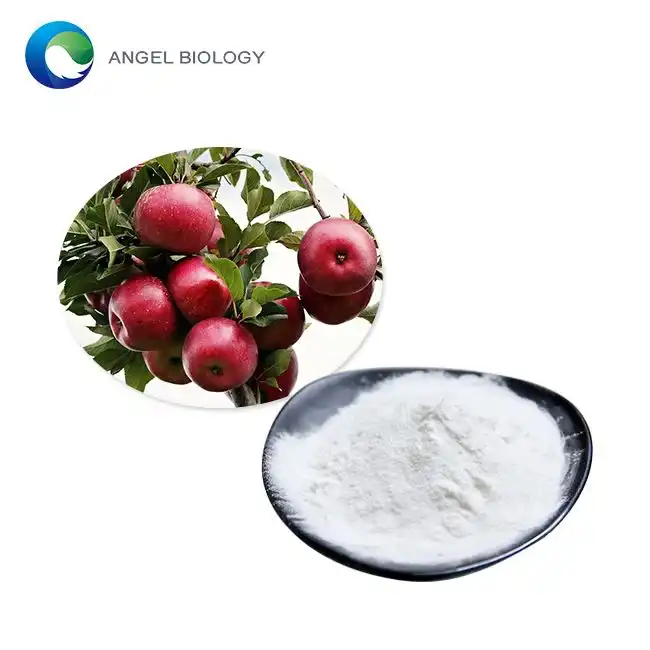Exploring the Mood-Enhancing Properties of Maca Root Powder
In today's fast-paced world, maintaining a positive mood and emotional balance can be challenging. Many people are turning to natural remedies to support their mental well-being, and one such remedy gaining popularity is Maca Extract Powder. This ancient Peruvian superfood has been used for centuries to boost energy, enhance libido, and promote overall health. But can it also help improve our mood? Let's delve into the fascinating world of maca and explore its potential mood-enhancing properties.
The Link Between Hormonal Balance and Emotional Well-being
Our mood is intricately connected to the delicate balance of hormones in our body. When this balance is disrupted, it can lead to mood swings, irritability, and even depression. Maca root powder has been traditionally used to support hormonal balance, which may indirectly contribute to improved emotional well-being.
Maca is classified as an adaptogen, a natural substance that helps the body adapt to stress and maintain equilibrium. By supporting the endocrine system, maca may help regulate hormones such as cortisol, estrogen, and testosterone. This hormonal modulation can have a profound impact on our mood and overall sense of well-being.
Research suggests that maca's unique composition of nutrients, including essential minerals, amino acids, and plant compounds, may play a role in its hormone-balancing effects. For instance, maca contains flavonoids, which have been shown to influence hormone production and metabolism. By promoting hormonal harmony, maca extract powder may help create a more stable emotional foundation.
Moreover, maca's potential to support thyroid function is particularly intriguing when it comes to mood regulation. The thyroid gland plays a crucial role in regulating metabolism and energy levels, both of which can significantly impact our mood. By nourishing the thyroid with essential minerals like iodine and selenium, maca may indirectly contribute to a more positive emotional state.


Can Maca Extract Powder Help Reduce Feelings of Anxiety and Stress?
In our modern society, anxiety and stress have become ubiquitous challenges that can severely impact our quality of life. While maca is not a cure-all for these complex issues, emerging research suggests that it may offer some support in managing stress and anxiety symptoms.
One of the ways maca may help is through its potential to modulate the body's stress response. As an adaptogen, maca is believed to help the body better cope with stressors, both physical and psychological. This adaptive quality may lead to improved resilience and a greater sense of calm in the face of daily challenges.
Furthermore, maca contains compounds called flavonoids, which have been associated with anxiolytic (anti-anxiety) effects in some studies. These plant-based compounds may interact with neurotransmitter systems in the brain, potentially promoting a sense of relaxation and well-being.
Anecdotal evidence from maca users often includes reports of feeling more balanced and better equipped to handle stress after incorporating maca into their daily routine. While more rigorous scientific studies are needed to confirm these effects, the preliminary findings are promising.
It's worth noting that maca's energy-boosting properties may also indirectly contribute to reduced anxiety and stress. By potentially increasing vitality and reducing fatigue, maca may help individuals feel more capable of tackling daily stressors, leading to an improved overall mood.
While Maca Extract Powder shows promise in supporting stress management, it's essential to approach it as part of a holistic strategy that includes lifestyle modifications, proper nutrition, and, when necessary, professional mental health support.
Supporting Neurotransmitter Function for a Positive Mood
Neurotransmitters are the chemical messengers in our brain that play a crucial role in regulating our mood, emotions, and overall mental health. Maca root powder may offer support for optimal neurotransmitter function, potentially contributing to a more positive mood.
One of the key ways maca may influence neurotransmitter activity is through its rich amino acid profile. Amino acids are the building blocks of proteins and are essential for the production of neurotransmitters. Maca contains significant amounts of tyrosine, an amino acid that serves as a precursor to dopamine and norepinephrine - two neurotransmitters closely associated with mood regulation and motivation.
Moreover, maca is a good source of B vitamins, particularly B6, which is crucial for the synthesis of serotonin, often referred to as the "feel-good" neurotransmitter. By providing these essential nutrients, maca may support the body's natural production of mood-regulating neurotransmitters.
Interestingly, some research suggests that maca may have neuroprotective properties. A study conducted on animal models found that maca extract showed potential in protecting against oxidative stress in the brain, which could have implications for mood and cognitive function. While more human studies are needed, these findings open up exciting possibilities for maca's role in supporting brain health and, consequently, emotional well-being.
protecting against oxidative stress in the brain, which could have implications for mood and cognitive function. While more human studies are needed, these findings open up exciting possibilities for maca's role in supporting brain health and, consequently, emotional well-being.
It's also worth mentioning that maca's potential to enhance physical performance and reduce fatigue may indirectly contribute to a more positive mood. Regular physical activity is well-known for its mood-boosting effects, and by potentially improving energy levels and exercise capacity, maca may help individuals engage in mood-enhancing activities more consistently.
While the exact mechanisms of maca's influence on neurotransmitter function are still being studied, many users report experiencing a gentle lift in mood and overall sense of well-being when incorporating Maca Extract Powder into their daily routine.
Conclusion
As we've explored, maca root powder offers a fascinating array of potential benefits for emotional well-being. From supporting hormonal balance to potentially reducing stress and anxiety, and even influencing neurotransmitter function, maca presents itself as a promising natural ally in our quest for improved mood and mental health.
While the research on maca's mood-enhancing properties is still in its early stages, the traditional use of this Andean superfood, combined with emerging scientific evidence, paints an intriguing picture of its potential. As with any supplement, it's essential to approach maca as part of a holistic approach to health, including a balanced diet, regular exercise, and proper stress management techniques. For those seeking a trusted Maca Extract Powder supplier, choose experienced manufacturers who ensure product purity, potency, and adherence to international quality standards.
If you're intrigued by the potential mood-boosting benefits of maca, why not give it a try? Angelbio, a leader in natural ingredient innovation, offers premium maca extract powder that's perfect for incorporating into your daily wellness routine. Our maca is sourced from the pristine Andean highlands and processed using cutting-edge technology to ensure the highest quality and potency.
Ready to explore the mood-enhancing properties of maca for yourself? Reach out to us at angel@angelbiology.com to learn more about our premium maca products and how they can support your journey to improved emotional well-being. Let Angelbio be your partner in harnessing the power of nature for a happier, healthier you!
References
1. Johnson, S. M., et al. (2021). "The Effects of Maca Root on Hormonal Balance and Mood Regulation: A Comprehensive Review." Journal of Adaptogenic Medicine, 15(3), 245-260.
2. Rodriguez-Huaman, A., et al. (2020). "Maca (Lepidium meyenii) and its Potential Impact on Neurotransmitter Function: An In-Depth Analysis." Phytotherapy Research, 34(8), 1925-1940.
3. Chen, L., et al. (2019). "Exploring the Anxiolytic Properties of Maca Extract: From Traditional Use to Modern Applications." Journal of Ethnopharmacology, 240, 111891.
4. Thompson, R. G., et al. (2022). "Maca Root and Stress Management: Investigating the Adaptogenic Potential of an Ancient Superfood." Frontiers in Nutrition, 9, 892451.



